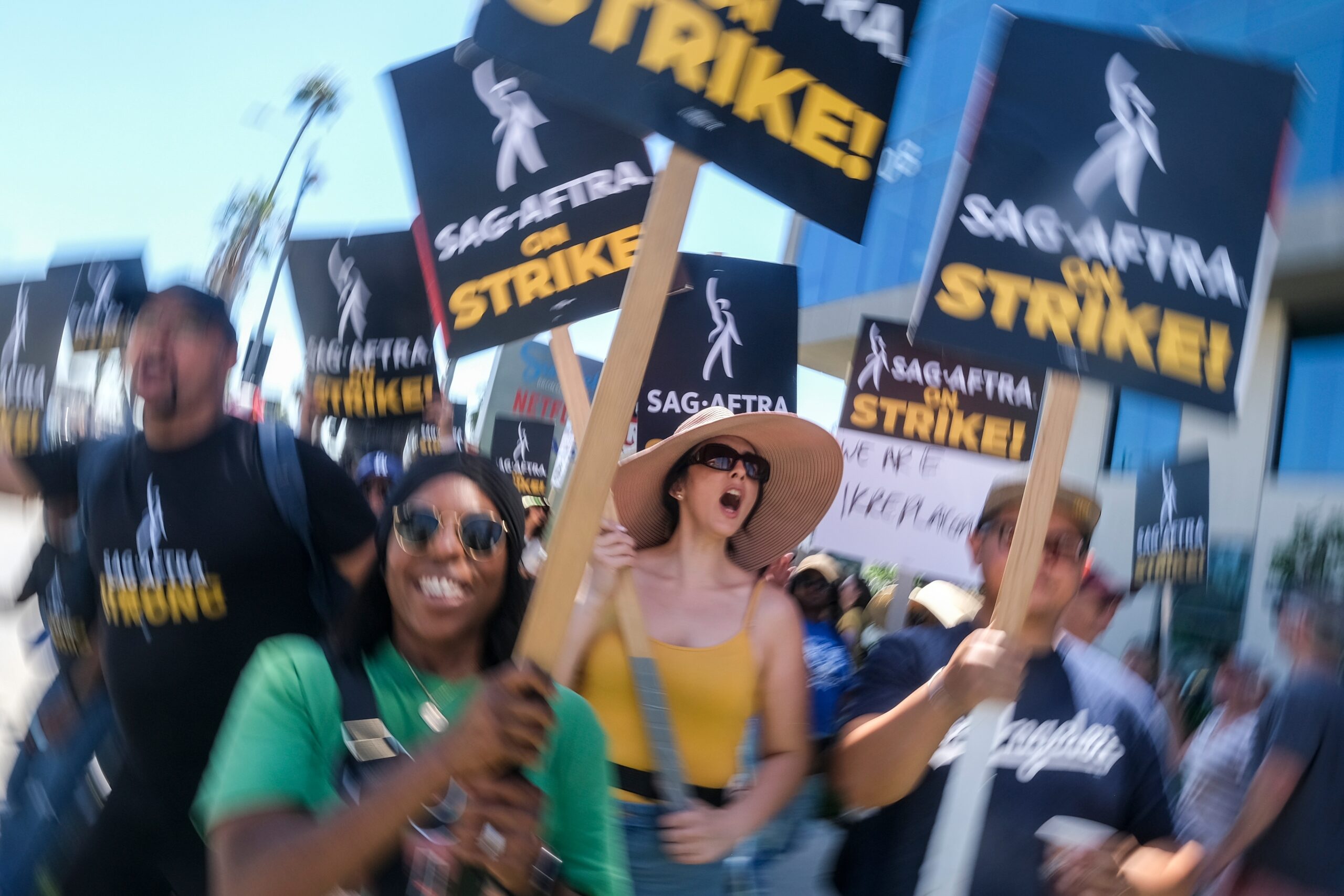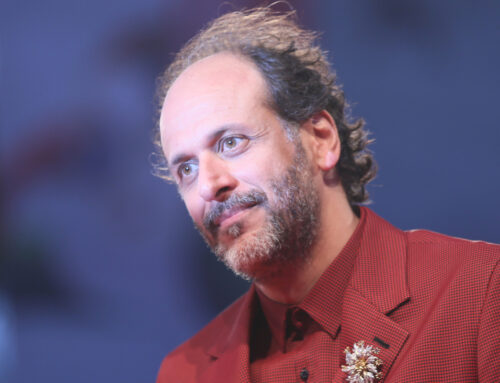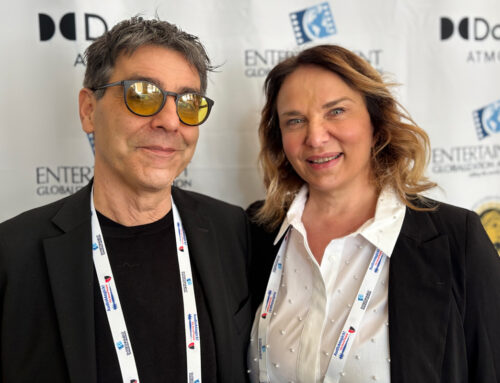The Actors’ Strike And What Happens Now
Venice and other festivals will likely be devoid of talent.
Hollywood is at a standstill. After the Writers’ Guild, SAG-AFTRA actors went on a strike, stopping, de facto, any activity in the entertainment industry.
Actors and screenwriters had not been on strike at the same time since 1960.
There are several reasons for a strike that SAG-AFTRA has been dealing with lately. The industry has undergone significant changes, shifting towards streaming platforms and away from traditional theatrical distribution and network and cable television. The concerns involve the use of AI in manipulating actors’ images, as well as fair residuals and data transparency in streaming projects. Additionally, conflicts have arisen over salaries, especially for guest stars, costars, and background actors. The rising inflation and cost of living have made it increasingly difficult for many working actors to earn a living wage.
In a press conference speech, SAG-AFTRA President Fran Drescher (The Nanny) summed up the reasons for the strike: “I am shocked by the way the people that we have been in business with are treating us,” she said. “The entire business model has been changed by streaming, digital, and AI. This is a moment of history that is a moment of truth. We will be in trouble if we don’t stand tall right now. We will all be in jeopardy of being replaced by machines and big business, who cares more about Wall Street than you and your family.” Drescher said that “there’s no way to predict” how long the strike may last.
During the strike, actors cannot act, sing, dance, perform stunts, pilot on-camera aircraft, work as puppeteers, or participate in performance-capture or motion-capture work. They cannot work as background actors, stand-ins, or photo/body doubles.
It’s important to note that all off-camera work supporting performance is prohibited. This includes ADR/looping, TV and theatrical trailers and promos, voice acting, singing, narration, and stunt coordination. Pre-production work is also considered part of the struck work, including fittings, wardrobe tests, makeup tests, rehearsals, camera tests, scanning, interviews, and auditions.
Actors may not participate in promotion for work made under the contracts, including press tours, personal appearances, interviews, conventions, fan expos, film and television festivals, FYC events, panels, premieres/screenings, award shows, junkets, podcast appearances, social media, and studio showcases.
As we approach fall festival season, when most studios make their premieres and early awards push, critical events like Venice and Toronto International Film Festivals will also likely be devoid of talent.
Being shot in the U.K., HBO’s House of the Dragon will continue filming. Most actors in the U.K. are not members of SAG-AFTRA, but they are in the U.K. sister union, Equity. Its General Secretary, Paul W. Fleming, released a statement standing in solidarity with SAG-AFTRA. Still, the U.K. offers different protection for union members, meaning “what artists working in the United Kingdom – whether SAG-AFTRA and/or Equity members (or both) – can do, may be different from their comrades in the United States and other parts of the world,” said Fleming.
Major film and television studios said they offered actors more than $1 billion in higher compensation and enhanced benefits before the SAG-AFTRA union called a strike last week. The Alliance of Motion Picture and Television Producers (AMPTP), which negotiates on behalf of Netflix, Walt Disney Co, Warner Bros Discovery, and others, said SAG-AFTRA “continues to mischaracterize the negotiations.”
Sources: EW, The New York Times, Reuters
Share:
Venice and other festivals will likely be devoid of talent.
Hollywood is at a standstill. After the Writers’ Guild, SAG-AFTRA actors went on a strike, stopping, de facto, any activity in the entertainment industry.
Actors and screenwriters had not been on strike at the same time since 1960.
There are several reasons for a strike that SAG-AFTRA has been dealing with lately. The industry has undergone significant changes, shifting towards streaming platforms and away from traditional theatrical distribution and network and cable television. The concerns involve the use of AI in manipulating actors’ images, as well as fair residuals and data transparency in streaming projects. Additionally, conflicts have arisen over salaries, especially for guest stars, costars, and background actors. The rising inflation and cost of living have made it increasingly difficult for many working actors to earn a living wage.
In a press conference speech, SAG-AFTRA President Fran Drescher (The Nanny) summed up the reasons for the strike: “I am shocked by the way the people that we have been in business with are treating us,” she said. “The entire business model has been changed by streaming, digital, and AI. This is a moment of history that is a moment of truth. We will be in trouble if we don’t stand tall right now. We will all be in jeopardy of being replaced by machines and big business, who cares more about Wall Street than you and your family.” Drescher said that “there’s no way to predict” how long the strike may last.
During the strike, actors cannot act, sing, dance, perform stunts, pilot on-camera aircraft, work as puppeteers, or participate in performance-capture or motion-capture work. They cannot work as background actors, stand-ins, or photo/body doubles.
It’s important to note that all off-camera work supporting performance is prohibited. This includes ADR/looping, TV and theatrical trailers and promos, voice acting, singing, narration, and stunt coordination. Pre-production work is also considered part of the struck work, including fittings, wardrobe tests, makeup tests, rehearsals, camera tests, scanning, interviews, and auditions.
Actors may not participate in promotion for work made under the contracts, including press tours, personal appearances, interviews, conventions, fan expos, film and television festivals, FYC events, panels, premieres/screenings, award shows, junkets, podcast appearances, social media, and studio showcases.
As we approach fall festival season, when most studios make their premieres and early awards push, critical events like Venice and Toronto International Film Festivals will also likely be devoid of talent.
Being shot in the U.K., HBO’s House of the Dragon will continue filming. Most actors in the U.K. are not members of SAG-AFTRA, but they are in the U.K. sister union, Equity. Its General Secretary, Paul W. Fleming, released a statement standing in solidarity with SAG-AFTRA. Still, the U.K. offers different protection for union members, meaning “what artists working in the United Kingdom – whether SAG-AFTRA and/or Equity members (or both) – can do, may be different from their comrades in the United States and other parts of the world,” said Fleming.
Major film and television studios said they offered actors more than $1 billion in higher compensation and enhanced benefits before the SAG-AFTRA union called a strike last week. The Alliance of Motion Picture and Television Producers (AMPTP), which negotiates on behalf of Netflix, Walt Disney Co, Warner Bros Discovery, and others, said SAG-AFTRA “continues to mischaracterize the negotiations.”
Sources: EW, The New York Times, Reuters









